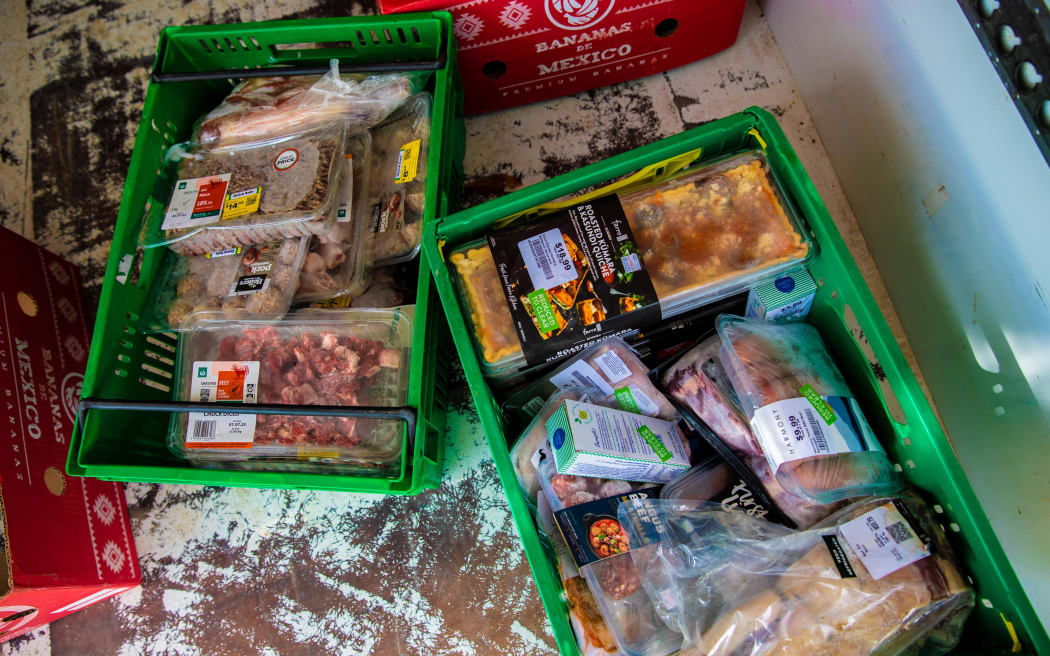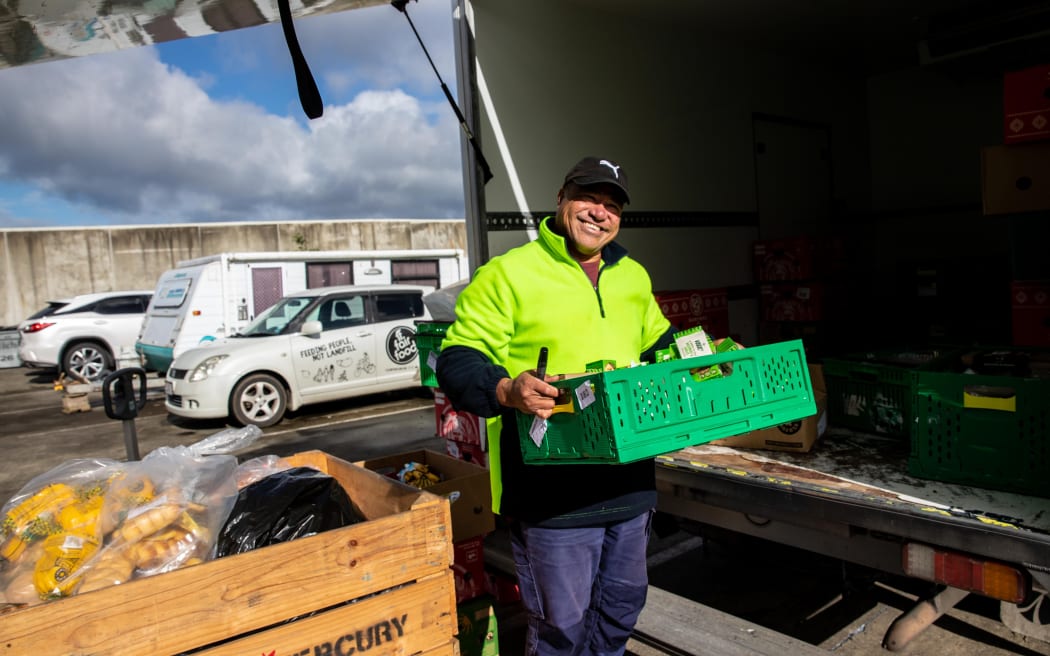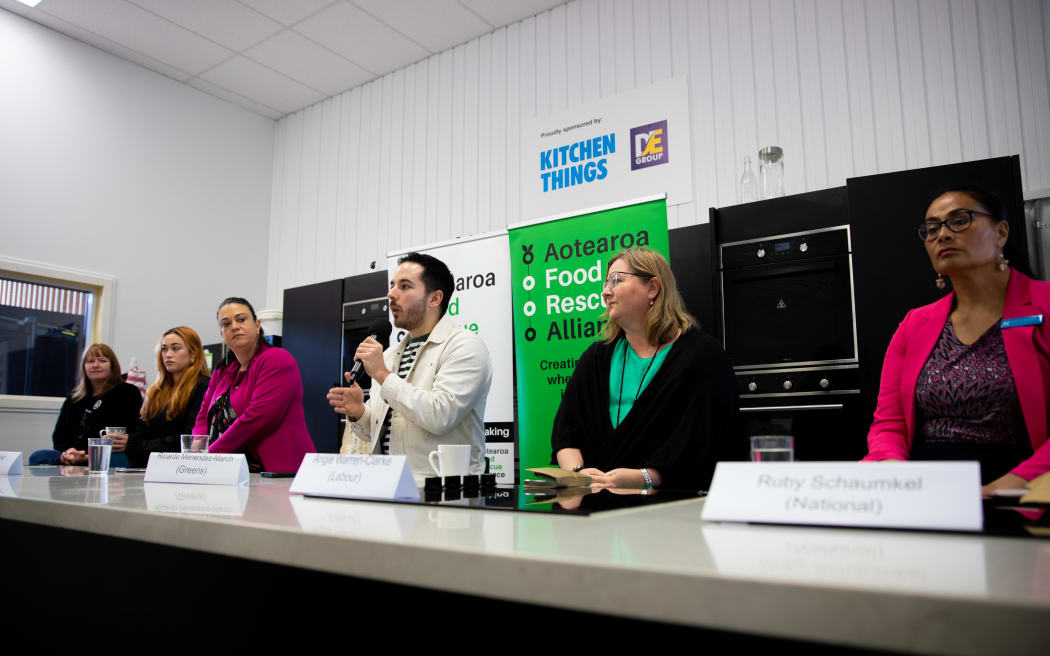Food rescue charities are facing massive funding cuts despite food insecurity being at at an all time high.
Today, organisations met with local MPs to voice their concerns, asking for a national food strategy, more funding and mandatory reporting on the country's food waste problem.
At Fair Food food rescue charity in West Auckland's Avondale, a truck laden with bread, fresh produce and snacks that was destined for landfill arrived.
Every day, two tonnes of fresh food from supermarkets and growers is processed before it gets sent out to 50 different charities who deliver to people in need.

Food is dispersed to about 50 different charities who deliver to people in need. Photo: RNZ / Marika Khabazi
That equates to about two million meals a year and general manager Michelle Blau said they were struggling to meet demand.
"Last week we shared 51 thousand meals worth of fresh food that would be in a bin if we weren't here to take it, but there's still a need that's outpacing what we can provide."
Labour's Angie Warren-Clarke said there was a huge problem.
"We have a food system that is broken in this country and that is the work that I've been trying really hard to start to enable in our government, we do need to fund these services more."

Fair Food food rescue charity in West Auckland's Avondale. Photo: RNZ / Marika Khabazi
Funding for the food support sector was reduced in this year's Budget, putting food rescue organisations like Fair Food at risk.
It is funded through the Food Security Programme run through the Ministry of Social Development and a reduced budget meant the charity faced losing 90 percent of its funding.
Blau said costs were already as low as they could get them - run solely by volunteers they processed one week's worth of groceries for about $10.
"We do about five-to-six tonnes a month of meat, six tonnes a month of dairy, at least 12 tonnes a month of fresh produce that we can do at an operating cost of less than $0.50 a meal, but someone needs to give us that $0.50."
While the government's extra $6 million dollars for food banks was welcome, it did not benefit food rescue groups which do not buy their food, she said.
"So we face a situation where there's money for tinned tomatoes but not money for fresh tomatoes. There's money for cheap food, but not money for fresh, healthy food."

Organisations met with local MPs on Tuesday to voice their concerns. Photo: RNZ / Marika Khabazi
Engagement and partnership lead at Aoteraoa Food Rescue Alliance Iain Lees-Galloway said about $1.5m in funding was going to food rescue organisations.
But with more than 30 around the country there was little left to go around.
Lees-Galloway said they needed $12m to keep up with demand.
"So the $12m isn't based on government funding ... we think about one-third from government, one-third from philanthropic sources, and a third from corporates is the right model."
They also want to see a national food strategy to insure zero food poverty and zero food waste.
Lees-Galloway said about one-third of food ended up going to waste.
"That's at all different points in the system ... on the farm, in manufacturing, at restaurants, in households."
Fair Food's waitlist was growing, with a new group needing support every day.
Despite facing an uncertain future it was planning to continue to rescuing kai from the rubbish and delivering it onto plates.

